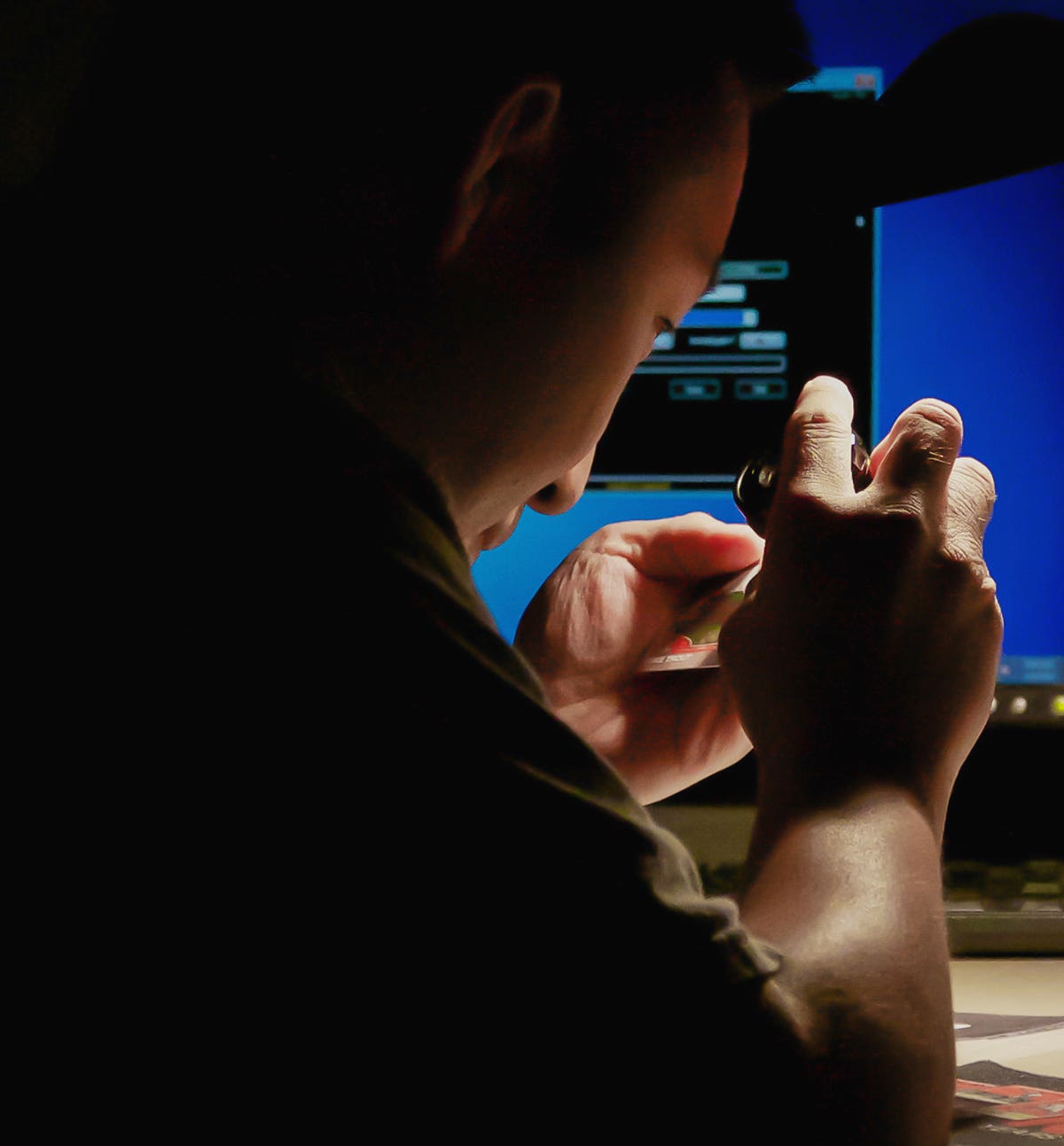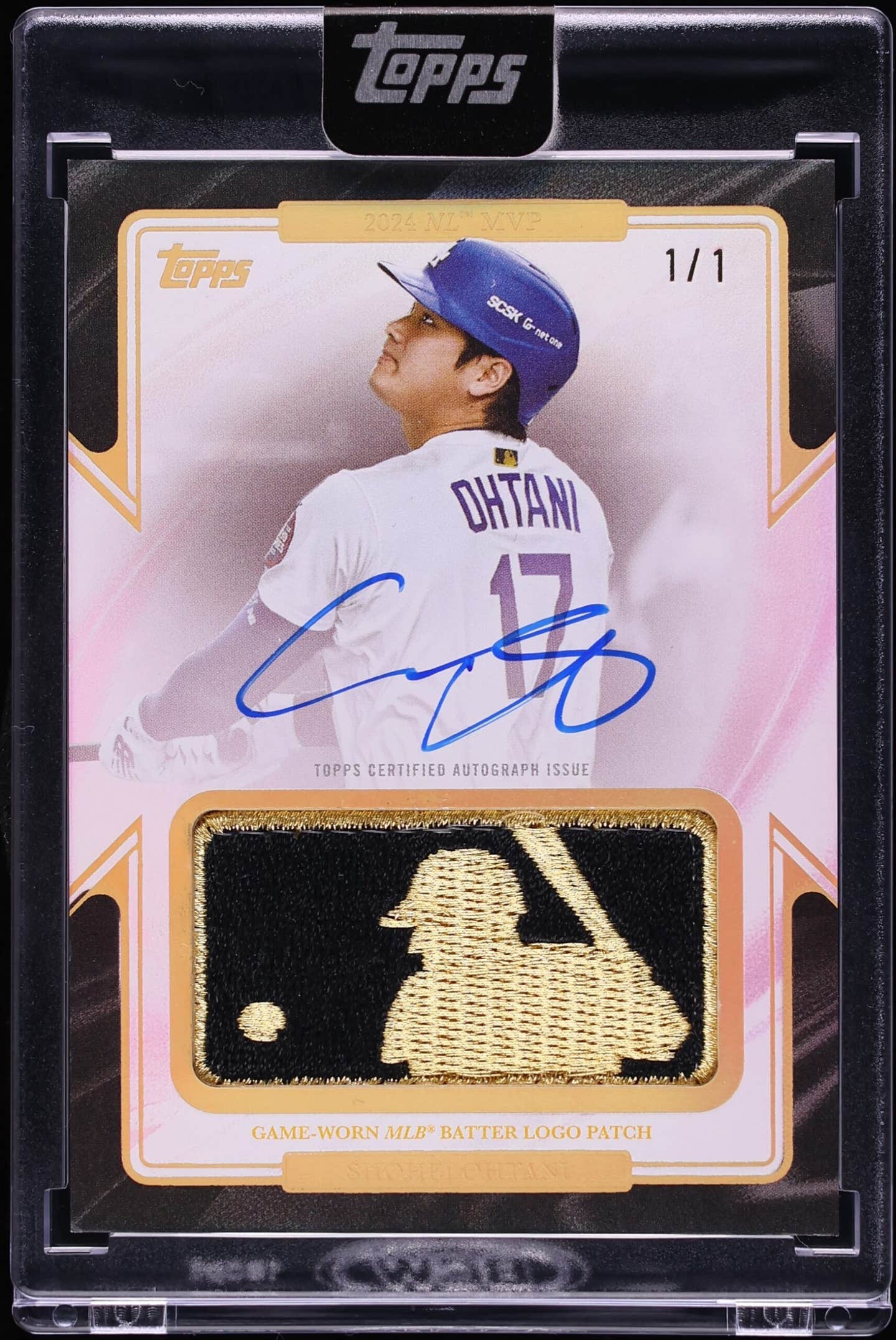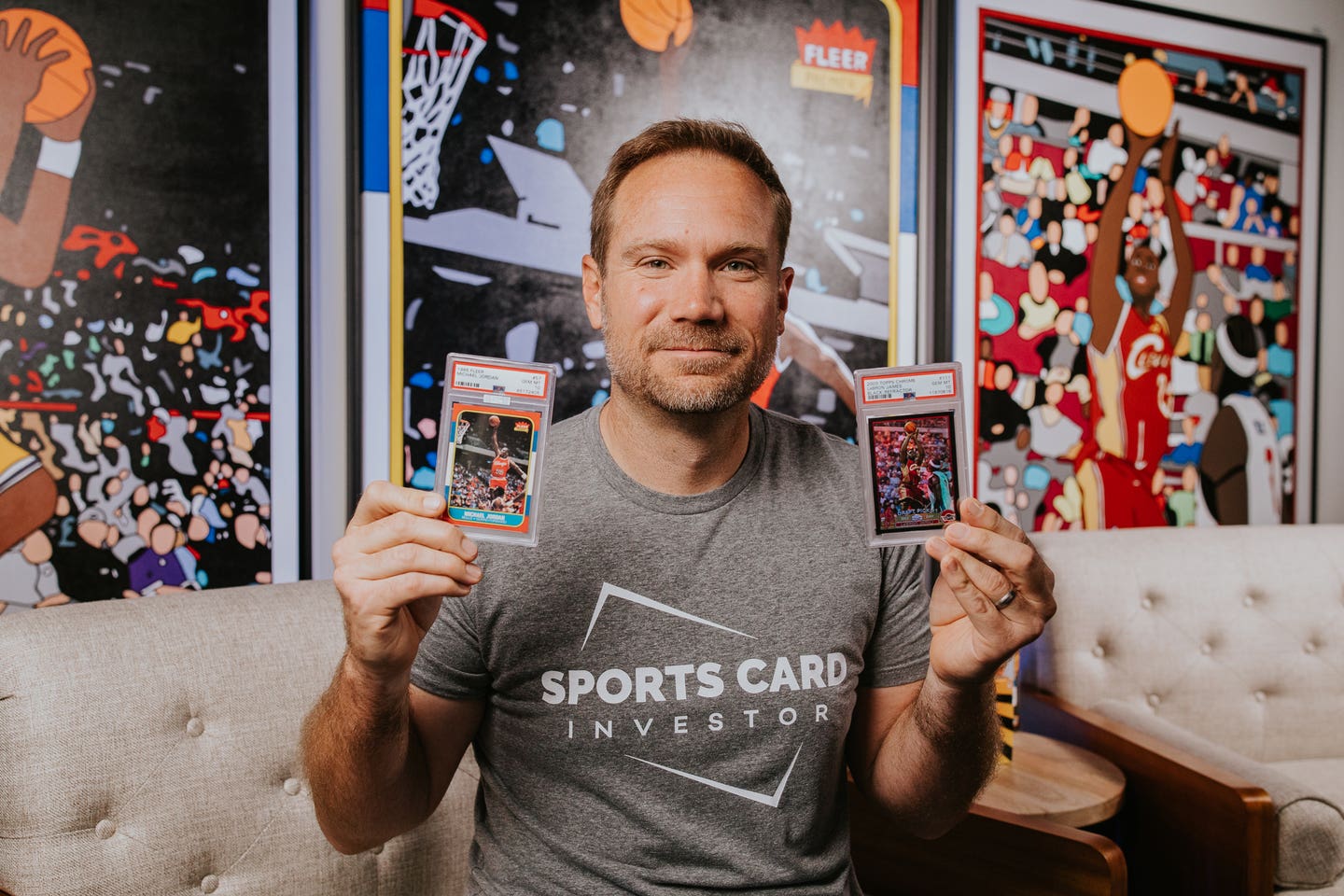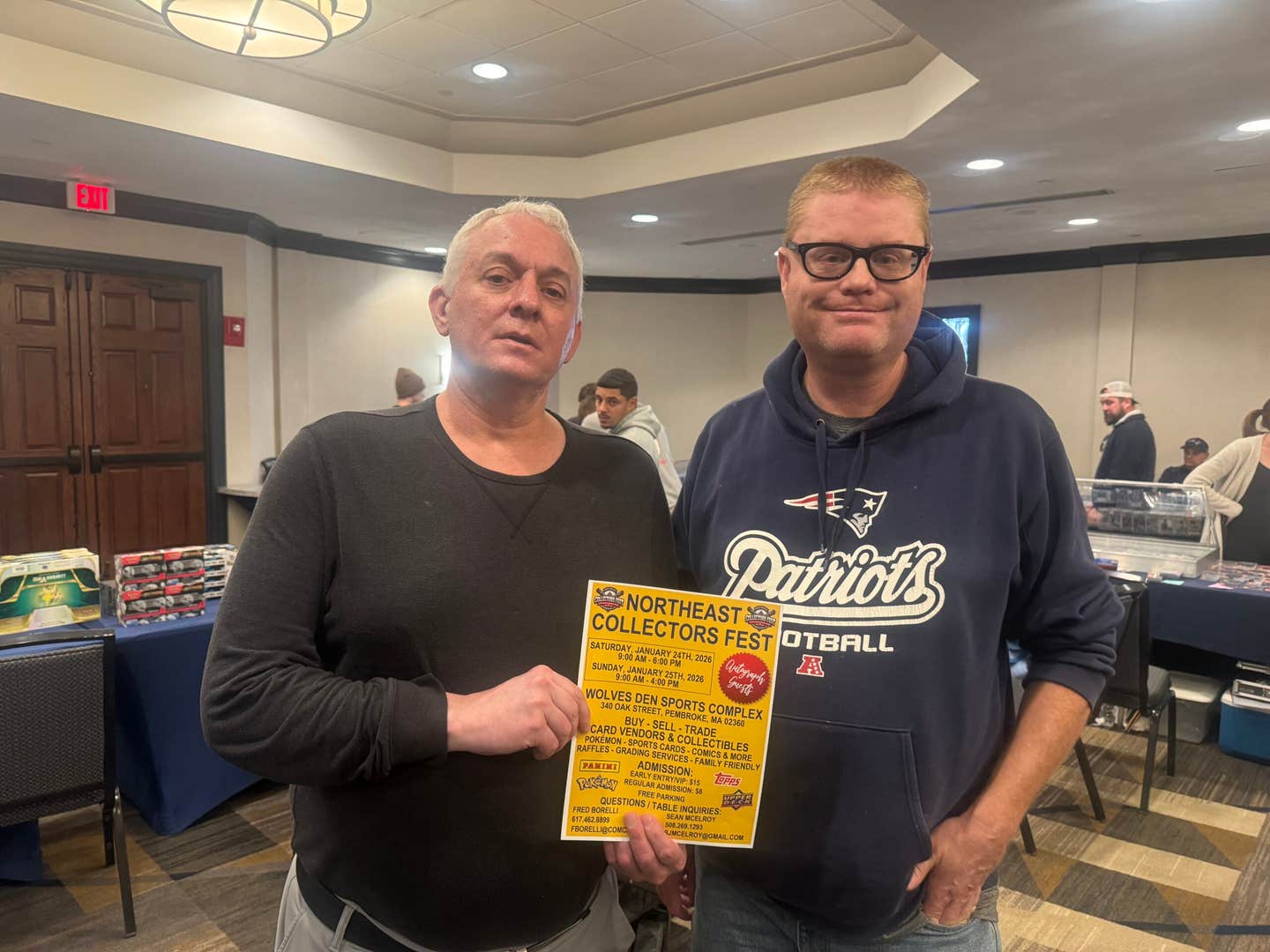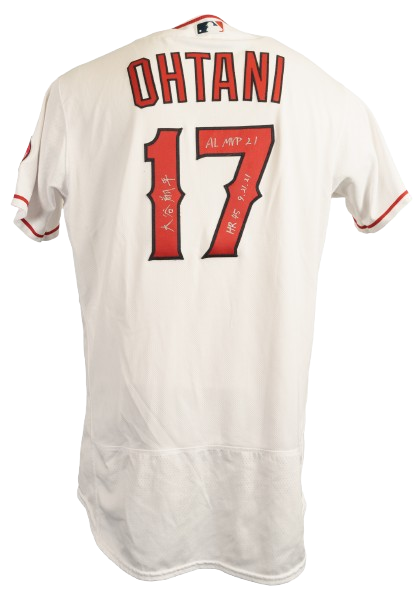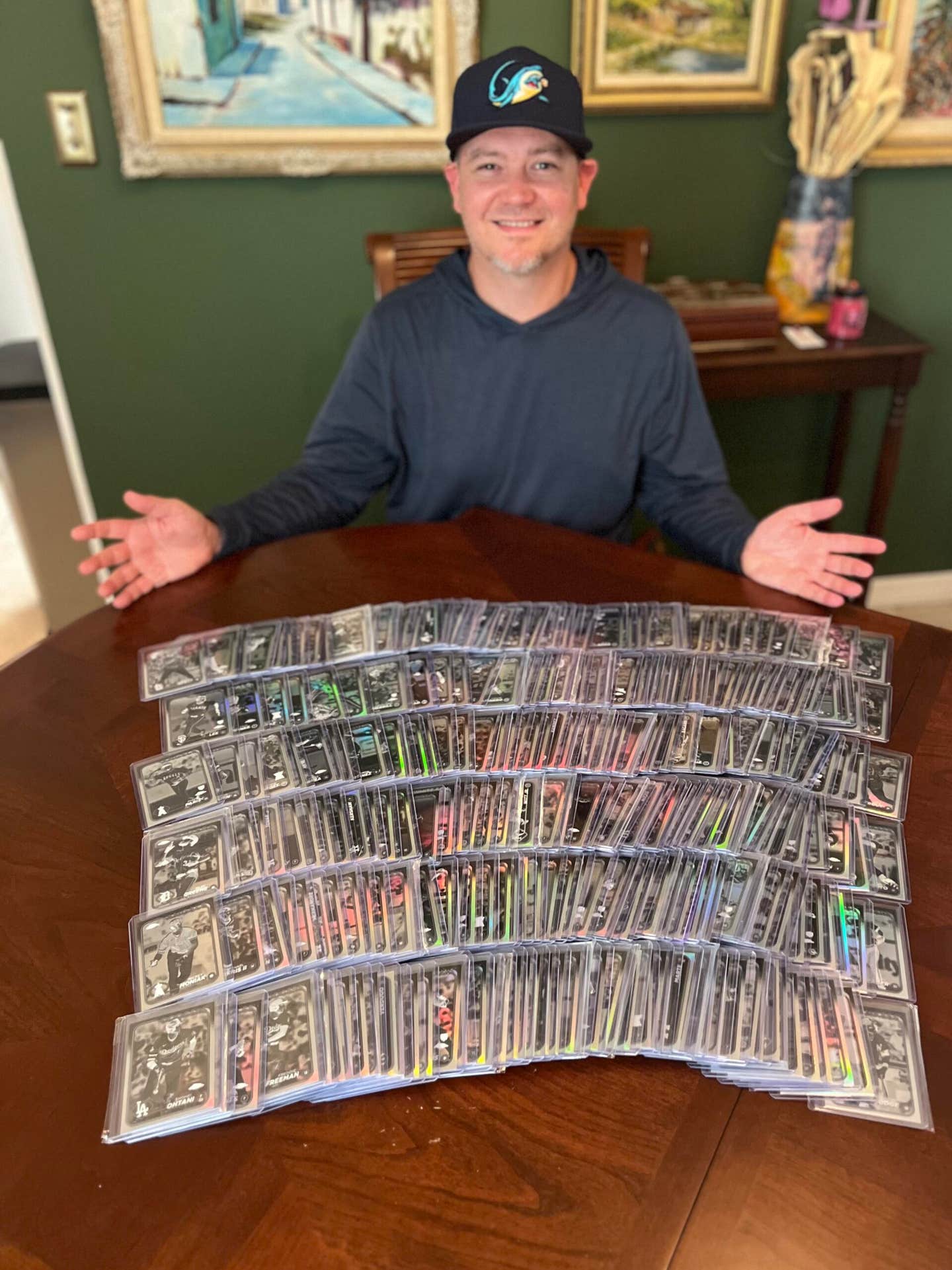Collecting 101
Musings of a game-used equipment collector
This is what I hope to be the first of many columns about game-used collecting. It might seem like an interesting part of the hobby, and it is. What could be better than having in your hands actual pieces of the game?
But it's not easy to collect game used. Believe it or not, there are a lot of tough decisions and, yes, even ethical dilemmas which will face you at every turn. Things that will make you question the fiber of your existence. But we'll get to that later.
To collect game-used items, you have to ask yourself the most basic questions.
What should I collect?
Seems obvious, but this question must be addressed when shaping your collection. For the most part, game-used items are pricier than collecting things like cards, so it's important to keep things focused so you only spend money on things you really want.
Do I collect a specific sport? Specific player? Team? Era? Position? You can take it in any direction.
There are collectors out there who are after some unlikely things. Defunct leagues, pro items of players who went to their college, players who's name begin with the letter 'Z.'
Someone I know collects football kickers - a brilliant idea - not a lot of competition out there, reasonable prices. It's also fun to see someone get excited when I send an email saying 'Did you see the Garo Yepremian on eBay?'
Others want no superstars. Also brilliant. Less likely you'll get a bogus item. Who's sitting in their basement doctoring a Butch Wynegar jersey? If you are, there's something wrong with you. Put down the sewing machine and go to the psychiatrist.
My likes are on opposite sides of the spectrum. I collect kings of world championships, the New York Yankees and the team that has been screwing with my head as long as I have been alive, the San Diego Chargers from the 1970s on up to today. Sprinkle in some Harlem Globetrotters items and you've got the Eric Stangel Collection. That's what I stick to. All the Lebron James and the Peyton Manning jerseys can come and go and I'm fine with that. Sure, they'll be in the Hall of Fame someday, but others can have them.
What should I collect?
Okay. Here is where it gets dicey. You need to be able to draw the line. There's a lot out there for sale.
My feeling is, stick to the big stuff like jerseys and helmets. Maybe pants if it's something special; an interesting style or a piece with a lot of wear.
When I open up the pages of an auction catalog and see Joe DiMaggio's shower shoes or (I gag to think about this) Greg Maddux's "game-worn" cup, I think we have gone down the wrong path. No intimates, please.
Sure, I'd love to have a piece of a Cy Young Award winner, but not that piece.
So stick to what works for you.
Even when you decide on your focus, you can't have everything. I wouldn't buy items of players I'm not familiar with and some that I do know, I don't need in my collection. Then there are some guys you feel awkward about collecting.
I call it The David Binn quandary.
David Binn is the long snapper for the Chargers, and the only holdover from the team that made it's lone Super Bowl appearance in January 1995. (He also dated Pamela Anderson: If that's who the longsnapper is getting, god bless the guys in the skill positions). There's David Binn stuff out there. Not shockingly, it's quite affordable. Do I collect him? Here's the moral dilemma.
Do I want to be known as the guy with four game-used items from the Chargers long snapper? Well I guess I am. And I have come to terms with it. I like him, so he stays. (Five years from now I'll read this and think I was a moron, by the way.)
But even when you think you've got it figured out, the inevitable will happen. You buy a great jersey from a player you love and when you open it to take it in for the first time you realize it stinks to high heaven.
I bought a beautiful throwback jersey of one of my beloved Chargers and had just that problem. You can't wash it because you'd be washing out the "game wear." I let the thing sit outside and somehow it didn't burn a hole in my picnic table, but the stink still remained. So I did something that hurt. I sold it to a fellow collector with the warning that he's going to have to wear goggles and a nose clip.
He bought it and I never heard a complaint. To this day I can't look at that Charger player and as well as he's doing on the field, all I can think about is, "He stinks."
How do I get genuine items?
The game-used industry is all about calculated risk. You likely are not going to get a piece of game-used equipment directly from the player, so try to get pieces that leave the least gray area.
These days you can get items straight from the teams. You can buy from the websites of teams like the Giants, Vikings, Chargers, and Dolphins. NFL Auction also sells throughout the year.
Other teams have garage sales and fan fests where collectors can line up to have a chance to grab a nice item with a team COA. The Cubs, White Sox, Orioles, A's and Braves are among teams who do this.
Other teams have deals with authorized sellers. The Yankees and Mets use Steiner Sports. The guarantee of authenticity comes at a price. I have gotten some true one-of-a-kind Yankees items- World Series pieces and Opening Day pieces - from names like Jeter, Bernie and O'Neill. That's good news for me, bad news for my future kids who might not be going to college, but hey, while they're home they can check out that photomatched dirt stain on the Jeter jersey.
If you can't do that, find dealers who you can trust. There are forums, (including the one I helped establish: www.gameusedforum.com) which will help you answer those questions. People share their experiences (good and bad) and are quite helpful. Also, there seems to be someone well versed in whatever you're interested in, so you can get an idea of what's real and fake, what it should look like and how much should it cost.
Should I buy insurance?
This is a definite yes. This stuff is expensive. Find a policy which will allow you to send a list of your items and have them insured individually. Ask your insurance agent for collectibles insurance. They're used to insuring works of art, but they might not know much about the game used hobby.
With that said, be prepared for some odd questions from the insurance agent. Here's how a recent conversation went with the company who insures my items and mind you, this is someone who deals with insuring collectibles as part of their job.
The scene: A phone call between me and the insurance agent. We have just spent 20 minutes talking about my policy.
Agent: Now, what are these things?
Me: They're game-used sports collectibles.
(No response)
Me: Sports uniforms that were used in games
Agent: But what do you do with these things?
Me: I keep them in my collection
Agent: (pause) But you don't do anything with them?
Me: No.
Agent: (pause) Oh.
I tell you, it was like getting punched in the gut. I knew this stuff was great, but the person who's 9 to 5 talking about collections couldn't understand what I was doing or why.
Hold your heads up high game-used collectors. There are others like you out there. And they understand. A nd I do, too.
Join me next time when I tell you why the Sharpie can be your enemy.
Eric Stangel founded of GameUsedForum.com to help game used collectors educate each other. He also has a closet that smells like a locker room.



